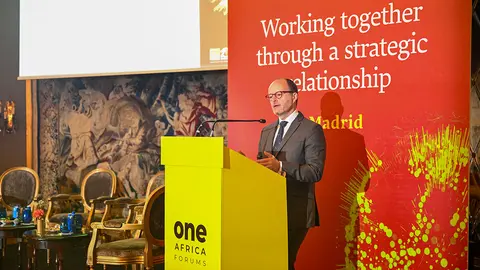Spanish-African relations and the role of young people, topics of debate at the first session of the Africa-Spain Summit in Madrid
The political and strategic relationship between Spain and Africa was the focus of the first sessions of the Africa Spain Summit 2025, held in Madrid from 6 to 8 July
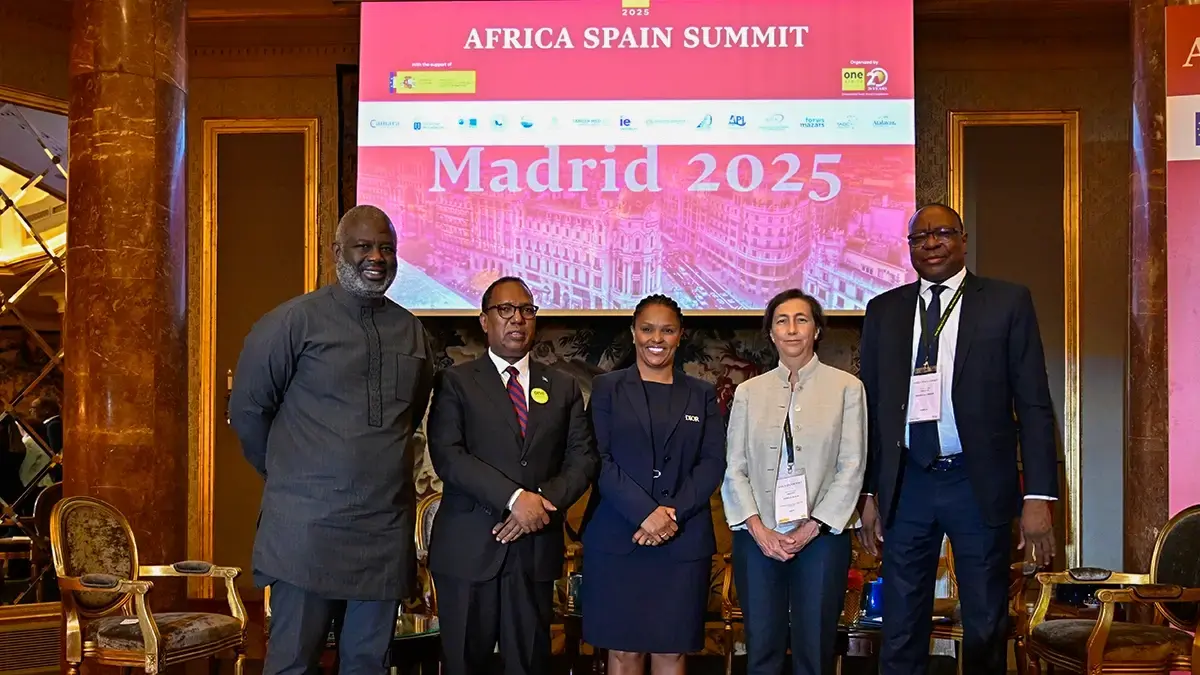
The first session of the day on 7 July, following the official presentation and opening speeches of the third edition of the Africa-Spain Summit, addressed the need to strengthen strategic and political relations between Spain and the African continent. Moderated by Abdu Diop, managing partner of Forvis Mazars, it was attended by Alicia Varela, director general of International Trade and Investment; Suzi Carla Barbosa, former foreign minister of the Republic of Guinea-Bissau; Elmi Mohamud Nor Ali, Minister of Public Works, Reconstruction and Housing of the Republic of Somalia; and Mankeur Ndiaye, former Minister of Foreign Affairs of Senegal.
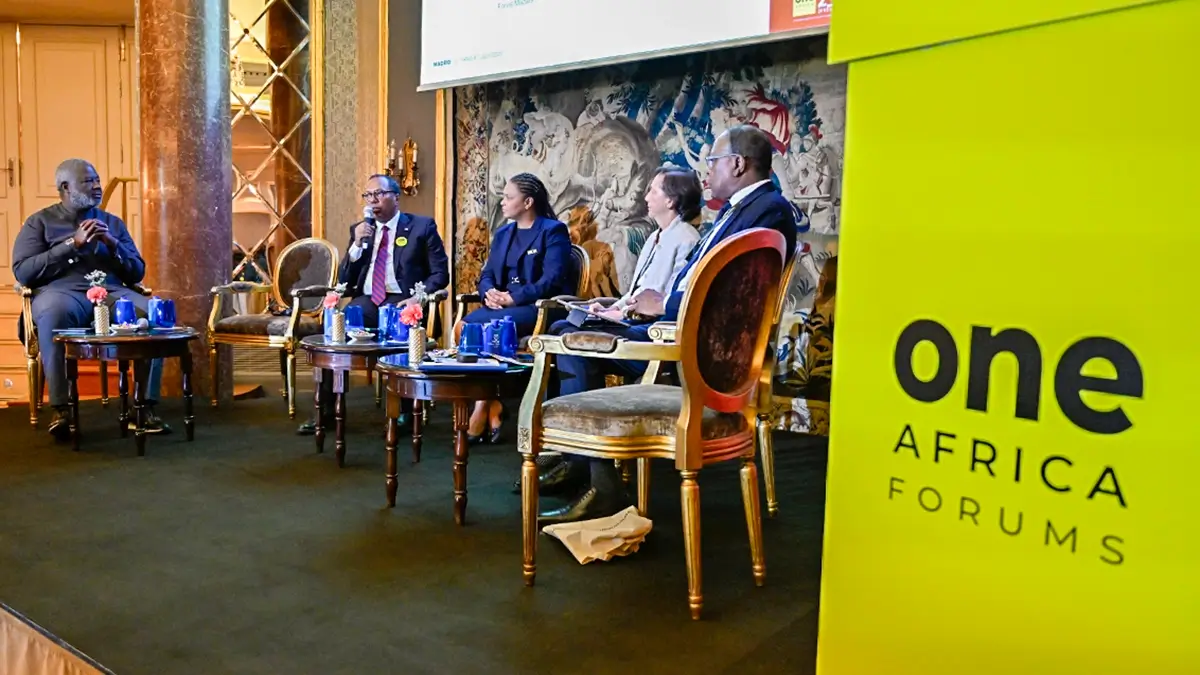
A close strategic relationship
‘In order to seek mutual benefit and economic cooperation with each country, it is important to attract the private sector, which helps to make projects economically viable in the long term. Today's exporter is tomorrow's investor: if companies see that there is a suitable environment for doing business, they will stay,’ said Varela.
As for the actions taken by the Spanish Ministry of Economy, the Director General of International Trade highlighted measures such as increasing incentives and institutional relations with these countries, as well as organising business forums for Spanish and African companies, with the support of the Chamber of Commerce and ICEX.
‘We have also adapted our financial instruments to help these companies and share the risk with them, promoting financing from the public sector, in many cases from private funds, although traditional government-to-government loans are still available,’ she said.
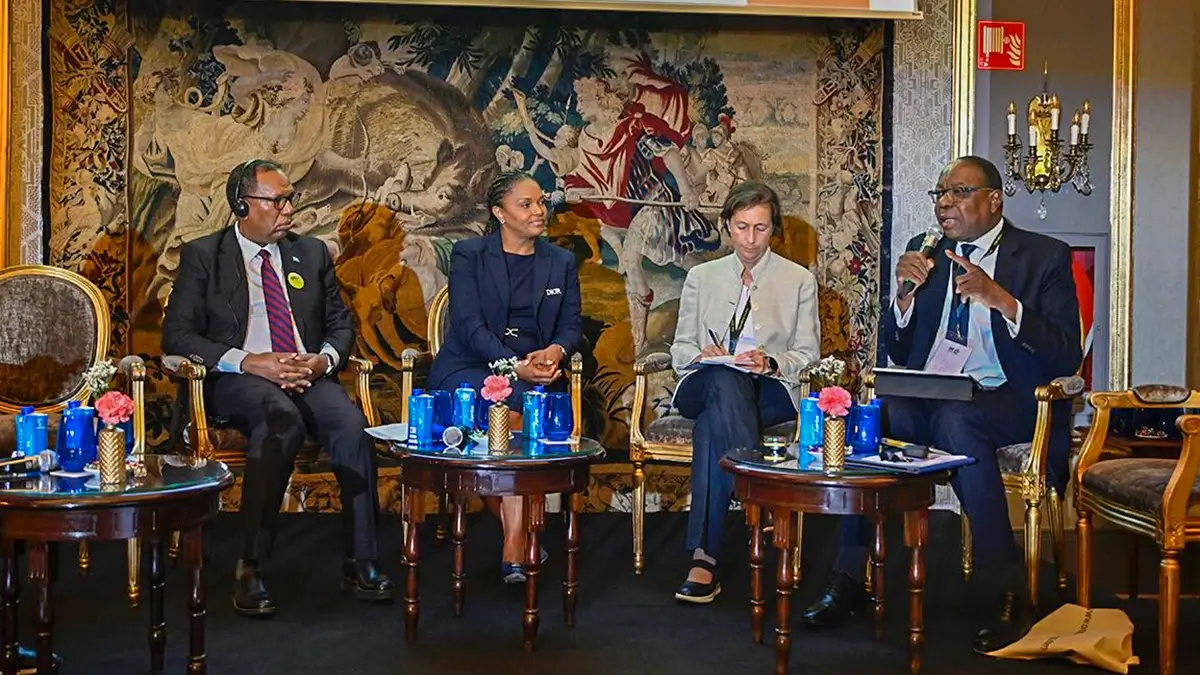
Mankeur Ndiaye, from Senegal, recalled the previous summits between Spain and African countries held by One Africa in the last two years and referred to the 2025-2028 strategic plan adopted by the government: "The Spanish government has established concrete measures and actions to strengthen bilateral cooperation. Spain is the European country closest to the African continent. There is very important cooperation, which is based on three pillars: legal and political; economic; and security and culture."
Ndiaye highlighted the collaboration between Spain and African countries in the fight against terrorism, especially in the Sahel region, and on the issue of migration: "There are many African migrants living in Spain, many of whom are Senegalese. Spain has legal migration: many young people and women come to work and then return to Senegal. However, other European countries do not do this, which is why it is essential to strengthen the multilateral vision of collaboration, both between Spain and the African Union and between Africa and the European Union."
For her part, Suzi Carla Barbosa, from Guinea Bissau, spoke of the importance of the Economic Community of West African States (ECOWAS) in strengthening cooperation with Spain. For Barbosa, ‘the West African economic group is almost as large as Europe. Spain is our gateway to Europe, and it is also present in Africa with Ceuta and Melilla, so it is important that it understands this reality and uses it to strengthen its relations with Africa and with the EU. Portugal and Spain are the countries that most defend the interests of African countries in Europe’.
According to Barbosa, ‘Africa is the continent of the future: in 2050 it will have the largest young population in the world and the largest middle class. The most important challenge is how to educate all these young people, how to get them jobs so that they do not have to emigrate to Europe. It is time to achieve the high-quality cooperation that we all want’.
Elmi Mohamud Nor Ali pointed out that the Horn of Africa is a place of great strategic importance for the continent and has significant natural resources and human capital: "30% of trade routes pass through the Indian Ocean and, therefore, through Somalia.
It is a very important area which, if destabilised, would have a huge cost for international trade and, when it works, contributes to the economic development of the world.‘ In his opinion, ’what we lack in Africa is infrastructure. We need capital investment, from north to south.
Capital requires opportunities, and Africa is full of such opportunities at all levels. For example, Somalia is ready to receive investment. We have large reserves of gas, oil, minerals, agriculture... Africa can be the world's food supplier."
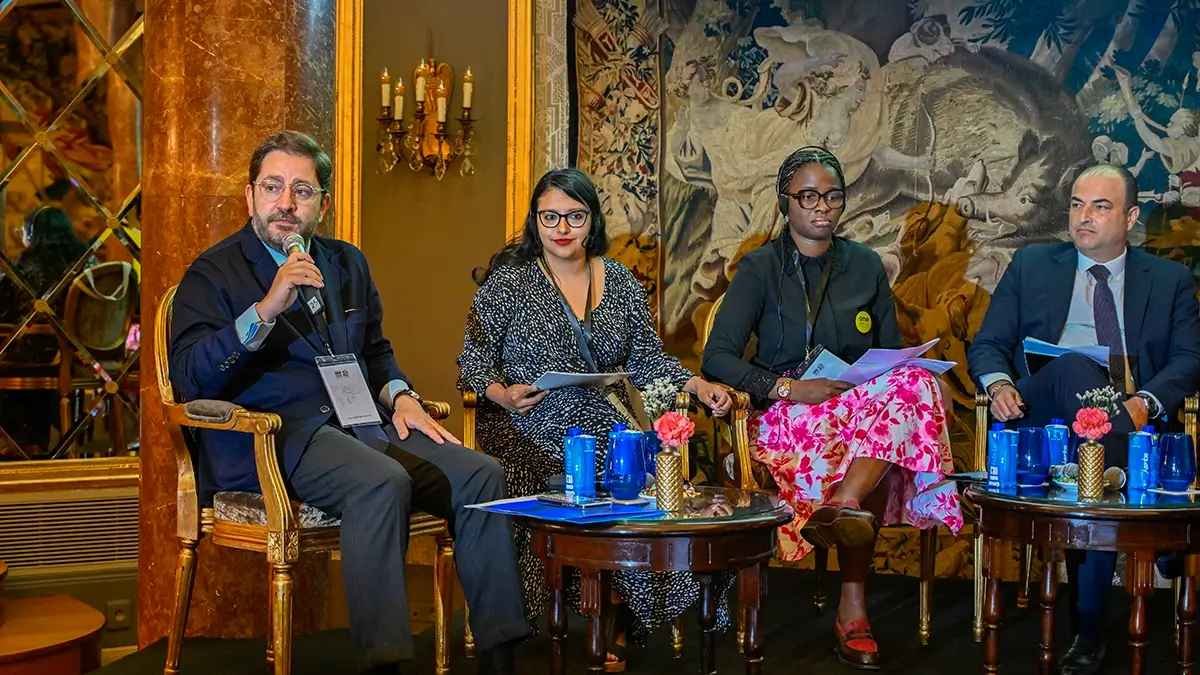
Youth, the focus
The second session addressed youth as the focus of Spanish-African cooperation. The moderator was Grace Obado, associate professor of International Relations and Sustainable Development at the Instituto de Empresa, and the participants were Margarita Guerrero Calderón, director general of the Youth Institute; Laura Muniozguren, regional cooperation advisor at AECID; Mohamed Hicham Baiz, from the Moroccan Agency for International Cooperation; Manuel Muñiz, rector of the Instituto de Empresa; Gwendoline Abunaw, President of APECCAM in Cameroon; and Hermione Bolumbe, President of the Young Parliamentarians of Central Africa.
Manuel Muñiz mentioned that Africa is one of the regions with the fastest growing population, which is also a challenge. The international environment is fracturing and the economies of the global south are becoming increasingly important, becoming a global pillar for many countries.
That is why summits such as today's are so important, as they take into account the role that Africa will progressively play in the future.
According to Muñiz, ‘universities are diplomatic tools for building bridges between countries. Very lasting relationships can be created, even lasting decades. So we need to strengthen this type of collaboration. And at the technological level, universities can catalyse growth, generating employment and innovation’.
Hermione Bolumbe, representing young parliamentarians, said that one cannot talk about Africa's development without talking about the integration of young people. ‘Young people in Central Africa use the means at their disposal to make themselves heard and bring about change. Social media is their parliament, where they denounce injustices and mobilise for causes such as free education and local corruption.’
In her opinion, entrepreneurship is the political response of young people: ‘When a young person launches a start-up, they are not doing so just to survive, but as a political statement, because they do not trust the system and are creating their own solution.’
‘To strengthen this role, we need to create official structures for dialogue with young people, to give them a space where they can put forward their proposals, finance their initiatives and invest in these ideas. I am not just talking about Central Africa, but about the whole of Africa; we must give them a voice in African forums,’ Bolumbe argued.
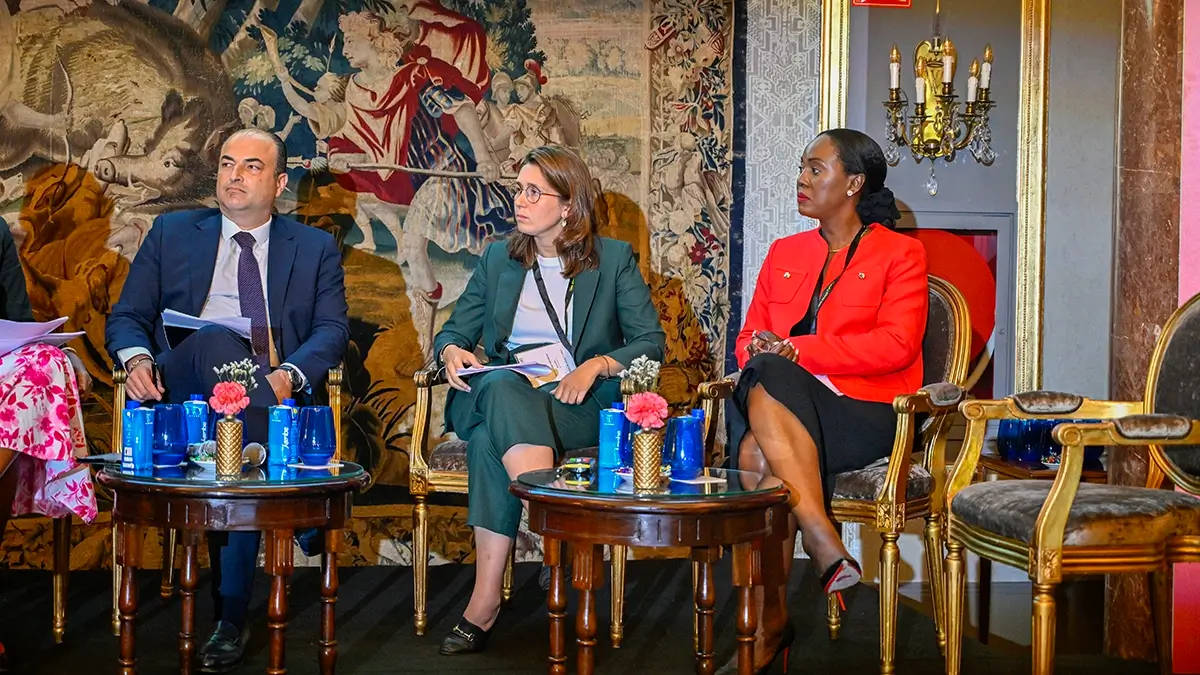
Mohamed Hicham Baiz, from the Moroccan Agency for International Cooperation, pointed out that triangular and South-South cooperation is strategic for Morocco: "We attach great importance to the education and training of young Africans, which is an asset for the continent, through scholarship programmes and training courses, with the help of various international institutions. The aim is to strengthen technical and economic cooperation between students from various countries for the exchange of knowledge and the development of their skills.‘
According to Baiz, ’to maximise the role of young people across Africa, they must be provided with the right tools: quality education, vocational training, funding for entrepreneurial projects, contact with mentoring networks, etc."
Margarita Calderón Guerrero explained the lines of support that the Youth Institute has with several African countries: ‘Growing disaffection is an endemic problem, particularly relevant in places with very young populations, which can create a gap that is very difficult to close. Their voices and their demands must be included in youth participation spaces to prevent their marginalisation.’
In addition, Calderón warned that cooperation relations must move away from the classic North-South format to become dynamic exchanges of experiences and deeper alliances, both at the civil and governmental levels.
Laura Muniozguren pointed out that the priorities of the AECID programmes are to support young people, focusing on inclusive development and guaranteeing equal economic rights. ‘The partnership with the African Development Agency focuses on training African women and young people, with economic incubators, so that they can lead development in Africa,’ she explained.
Gwendoline Abunaw spoke about the difficulties of access to credit for young people and women in Africa: "Most African countries have weak economies. Money comes from people who have been saving, and our funds are small because we are just starting out. Money is only available in the short term, and the next problem is risk, because credit institutions are risk-averse and there are government policies not to finance start-ups, a sector in which most young people and women are employed and which, moreover, lack a credit history, as they have worked in the informal economy".
The solution lies in creating specific products for these groups: women and young people.
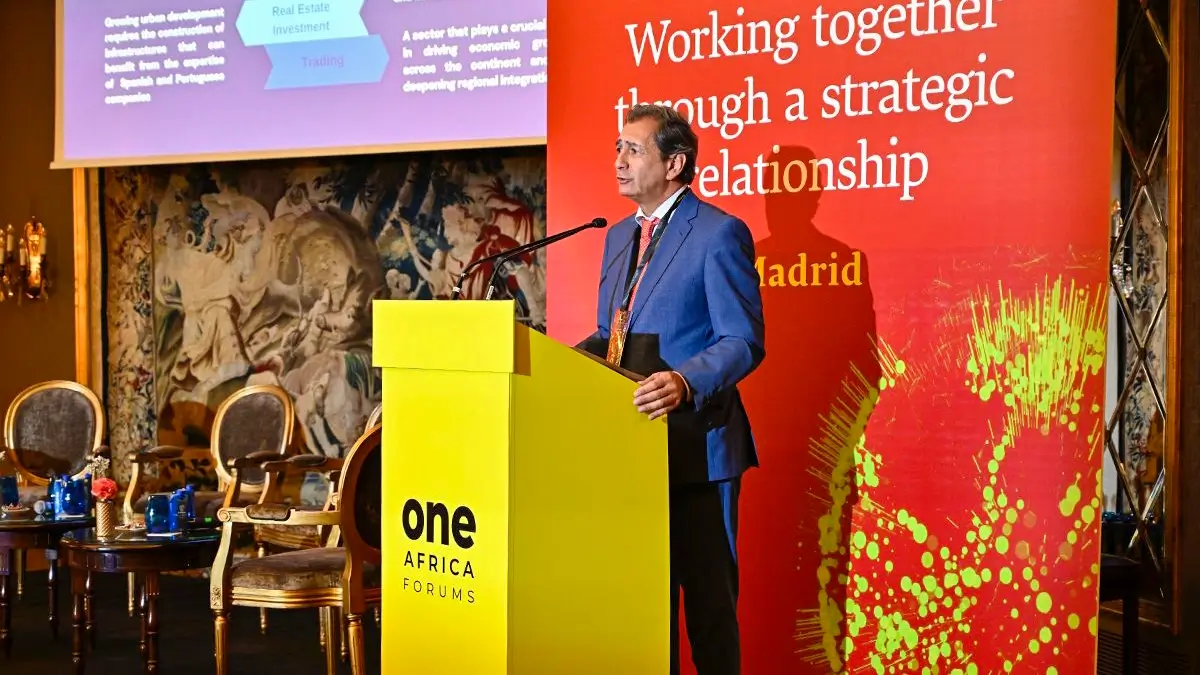
Presentation of AFRICO
The morning session concluded with the official presentation of the Ibero-African Association of Chambers of Commerce (AFRICO), which is chaired by Luis Padrón, president of the Gran Canaria Chamber of Commerce.
In his speech, Padrón explained that this is a network made up of the Spanish Chamber of Commerce, the Portuguese Chamber of Commerce and the Federation of West African Chambers of Commerce, which was created a few months ago in Madrid to strengthen economic relations.
‘We want it to be a benchmark for institutions. We believe that the relationship between chambers is fundamental, which is why it is necessary to maintain a direct relationship with the chambers of commerce of West Africa. The headquarters are in the Canary Islands, which is the southern border of the EU and a region that has had a deep African vocation, with numerous air and sea connections with countries in West Africa,’ he concluded.

